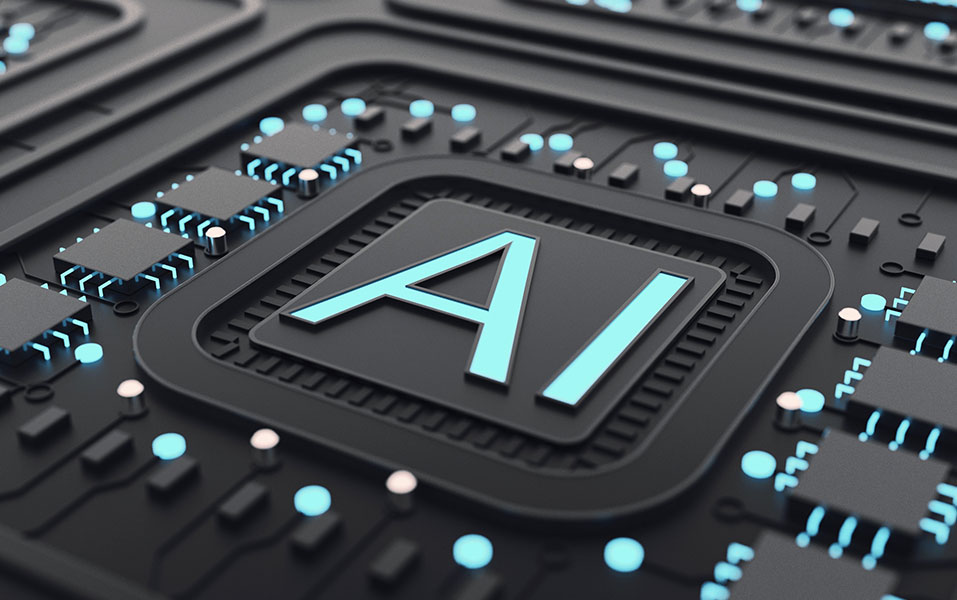In the highly competitive real estate market, capturing attention and building trust with potential buyers or renters is more challenging than ever. With countless listings vying for visibility, creating compelling, targeted, and visually engaging content is the key to standing out. Enter artificial intelligence (AI), a game-changing technology transforming how real estate professionals approach marketing.
From crafting personalized property descriptions to generating immersive visuals and predictive market insights, AI-driven content creation enables real estate agents to work smarter, not harder. By leveraging AI, marketers can create tailored experiences that resonate with buyers, streamline processes, and maximize return on investment. In this article, we explore how AI revolutionizes content creation in real estate marketing, helping professionals stay ahead in an increasingly digital and data-driven landscape.
Personalized Property Descriptions
Gone are the days of generic property listings. AI-powered tools can analyze property details, neighborhood features, and target demographics to generate tailored descriptions that resonate with specific buyer personas. For instance, an AI platform might emphasize the proximity to schools and parks for a family-oriented audience while highlighting nearby nightlife for young professionals.
This customization is driven by Natural Language Processing (NLP), enabling real estate agents to produce polished, SEO-optimized content in seconds. Tools like ChatGPT and Jasper are popular for their ability to create vivid, emotionally engaging descriptions that can increase click-through rates and inquiries.
Visual Content Generation
Visual appeal plays a crucial role in real estate marketing. AI-driven tools like DALL·E and Mid-Journey can create realistic renderings of properties, helping potential buyers visualize their future homes. These technologies can enhance or stage virtual spaces, allowing listings to stand out in competitive markets.
Moreover, AI-driven photo enhancement tools such as Canva and Adobe’s Sensei use machine learning to improve image quality, adjust lighting, and remove unwanted objects. Virtual tours powered by AI can further immerse potential buyers, offering interactive experiences that were once the realm of high-end listings alone.
Hyper-Targeted Marketing Campaigns
AI doesn’t just help create content—it ensures the right content reaches the right audience. Machine learning algorithms analyze user behavior, location, and preferences to deliver targeted ads on platforms like Google, Facebook, and Instagram. By understanding audience segmentation, AI helps real estate agents allocate their budgets effectively, maximizing ROI.
Predictive analytics, another AI feature, can forecast market trends and consumer behavior, allowing marketers to create timely and relevant campaigns. For example, AI might identify a growing demand for eco-friendly homes in a particular region and suggest content highlighting sustainable property features.
Streamlining Social Media Strategies
Social media is a cornerstone of real estate marketing, and AI makes it easier than ever to maintain a consistent and engaging presence. AI tools like Buffer or Hootsuite Insights analyze engagement metrics to recommend optimal posting times, hashtags, and content types. Generative AI can draft captions, design graphics, and suggest blog topics, saving marketers countless hours.
Building Trust Through AI-Driven Chatbots
AI-powered chatbots are transforming customer service in real estate. These virtual assistants respond instantly to inquiries, schedule property viewings, and even answer complex questions about mortgages or lease agreements. Chatbots maintain a 24/7 presence and ensure potential clients remain engaged and informed, building trust and boosting conversion rates.
The Ethical Considerations
While AI offers immense benefits, it also raises ethical questions. Ensuring transparency in AI-generated content is crucial to maintaining consumer trust. Real estate professionals must balance automation with human oversight to ensure accurate and appropriate outputs.
Conclusion
AI-driven content creation revolutionizes real estate marketing by automating repetitive tasks, delivering hyper-personalized messaging, and enhancing visual storytelling. As the technology continues to evolve, real estate professionals who embrace AI stand to gain a significant competitive edge, creating experiences that are not only efficient but also deeply engaging for their clients.
By leveraging AI strategically, the real estate industry can meet modern consumer expectations and drive meaningful connections—one listing at a time.
Frequently Asked Questions
How does AI improve property listing descriptions?
AI leverages Natural Language Processing (NLP) to generate detailed and engaging property descriptions. By analyzing the property’s features, surrounding amenities, and even market trends, AI can tailor content to resonate with specific target audiences. For example, for a family-oriented property, the description might highlight nearby schools, playgrounds, and community safety. AI tools like ChatGPT or Jasper allow real estate professionals to quickly create SEO-optimized, compelling text, saving time while maintaining high-quality content.
What role does AI play in creating visual content for real estate?
AI enhances the visual presentation of properties in several ways:
- Photo Editing: Tools like Adobe Sensei improve image quality by adjusting lighting, enhancing colors, and removing imperfections.
- Virtual Staging: AI-powered platforms can furnish empty rooms digitally, giving buyers a better sense of how the space can look.
- Renderings and Customizations: Generative AI tools like DALL·E can create custom visuals or redesign rooms virtually, enabling agents to present properties more attractively.
- This helps listings stand out in a competitive market, improving engagement rates.
How can AI help real estate agents target the right audience?
AI uses machine learning to analyze large datasets, such as browsing history, demographics, and location-based data, to identify patterns in buyer behavior. With these insights, AI tools craft hyper-targeted advertising campaigns tailored to the preferences of specific buyer segments. For example, an AI system might identify that young professionals in urban areas respond best to ads showcasing modern, tech-friendly apartments. AI ensures higher ROI on marketing campaigns by optimizing ad placement and timing on platforms like Google and Instagram.
What is the role of AI in real estate social media marketing?
AI simplifies social media marketing by:
- Content Generation: AI tools draft captions, design graphics, and even create posts tailored to audience interests.
- Scheduling and Optimization: Platforms like Hootsuite and Buffer use AI to analyze engagement metrics, suggesting optimal times to post and the best-performing hashtags.
- Trend Analysis: AI monitors market trends and audience behavior, recommending content that aligns with users’ interests.
- These features enable real estate agents to effortlessly maintain an active and relevant online presence.
How does AI support customer interactions in real estate marketing?
AI-powered chatbots are a game-changer for customer interactions. They:
- Respond instantly to inquiries, providing details about listings, scheduling tours, or answering questions about financing.
- Operate 24/7, ensuring leads are nurtured outside regular working hours.
- Use machine learning to offer personalized recommendations based on the user’s preferences.
- By automating these interactions, chatbots reduce response times, enhance customer satisfaction, and increase the likelihood of conversion.
Can AI predict real estate market trends? How does it help marketers?
AI uses predictive analytics to forecast market trends by analyzing historical prices, buyer behavior, and economic indicators. These insights help marketers:
- Anticipate shifts in demand, such as increased interest in eco-friendly homes.
- Adjust marketing strategies to align with trends, like highlighting properties with energy-efficient features.
- Provide clients with data-driven advice, building trust and credibility.
- Predictive capabilities empower real estate professionals to stay ahead in a dynamic market.
What are the ethical concerns associated with AI in real estate marketing?
Key ethical concerns include:
- Transparency: AI-generated content must be clear and truthful, avoiding exaggeration or misrepresentation of properties.
- Bias in Data: AI systems can unintentionally reinforce biases in the training data, leading to unfair targeting or omissions.
- Over-reliance on Automation: While AI automates tasks, it’s essential to maintain human oversight to ensure accuracy and empathy in client interactions.
- Real estate professionals must use AI responsibly, balancing automation with ethical practices to maintain consumer trust.
What are the cost benefits of using AI in real estate marketing?
AI offers significant cost advantages, including:
- Reduced Labor Costs: Automating tasks like content creation, photo editing, and customer interactions saves time and reduces the need for outsourcing.
- Efficient Ad Spend: AI optimizes ad targeting and placement, ensuring every dollar yields higher ROI.
- Scalability: AI allows agents to handle larger workloads without additional resources, allowing businesses to grow more efficiently.
- These benefits make AI a valuable investment for real estate professionals looking to optimize their marketing budget.












